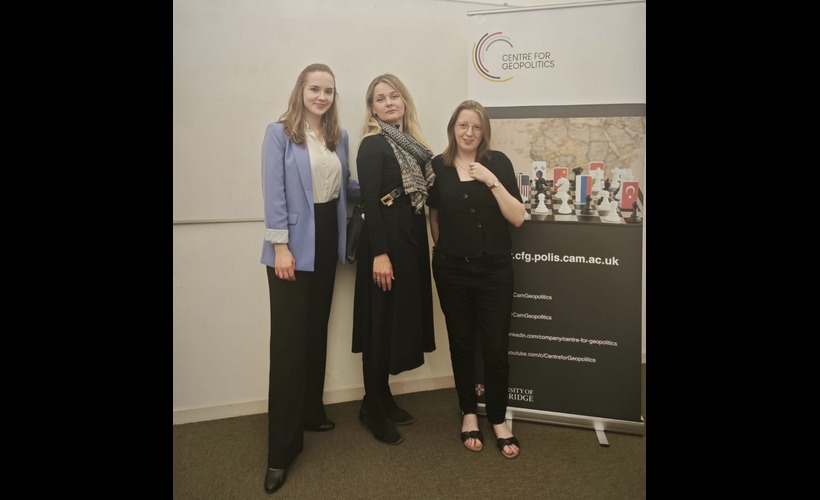By Hugo Bromley, former Ax:son Johnson Research Assistant in Applied History
What does it mean to have a ‘Russian perspective’? This conversation, between former home secretary Rt. Hon. Charles Clarke and Dr Dmitri Trenin, the director of the Carnegie Moscow Centre, explored this question in some depth. Dr Trenin stated, eloquently and extremely convincingly, an almost completely fatalist view of relations between Russia and the west. Rapprochement was almost certainly impossible in his lifetime, and even what he described as ‘good neighbourliness’ was unlikely. What was needed, therefore, was simple neighbourliness, a recognition of geopolitical proximity that would avoid military and potentially nuclear conflict. This in turn required processes in place for managing disputes so that they did not descend into conflict, while encouraging cooperation in non-political areas.
The conversation did discuss recent crises, particularly the recent hijacking of a Ryanair flight over Belarus and the attempted assassination of Sergei Skripal in Salisbury. Dr Trenin argued that such flareups between Russia and the West were the inevitable consequence of current tensions between Russia and NATO. Indeed, Dr Trenin argued that Russia’s failing was to have carried out covertly actions that should have been carried out in an overt way. What was needed to manage these incidents were backchannels equivalent to those that were in place during the Cold War. Dr Trenin spoke powerfully of his own experiences of East Germany, and the need to prevent what he saw as the returning risk of a nuclear conflict.
In a Baltic context, Dr Trenin spoke on the poor treatment of ethnic Russians in the Baltic states but argued that Russia must continue to reach out to states in the Baltic Sea Region and settle historical issues, as Russia was doing in Poland before the 2013 air disaster.
My own reaction, as a student listening to this conversation, was one of concern. If this is indeed the perspective of one of the leading Russian analysts of foreign policy, how can the West respond?
Russia is not the primary foreign policy focus of the West, and particularly not America. Without doubt that is now China, whose economic position means that it is rightly the world’s first priority. Indeed, China has recently begun to extend its influence in the Baltic and high North, to the concern of many. Managing relations with China will take a huge effort on the part of almost all western nations.
Does the west as a whole truly have the capacity to engage in two major rivalries at once? The obvious solution is for Europe to take on more of the burden of managing Russia, yet that seems to present two challenges. The first is that Europe is not necessarily unified on Russia. But the second is that Russia, and particularly those Russians who still remember the Cold War, do not necessarily conceive of European NATO countries as worthy adversaries distinct from America. One only has to look to how Putin’s Biden summit is being heralded as a huge victory for the Russian president to see the domestic importance to Putin of being seen to be speaking with the United States directly, and on equal terms. Never mind that the countries of the Baltic Sea Region, combined, have a larger GDP than Russia. Russia needs to speak to the ‘country in charge’, and will do whatever it takes to do so, possibly by taking ever-more risky decisions in foreign policy.
All this makes it all the more important that NATO forces in the Baltic remain strong, while organisations like the Centre for Geopolitics continue to engage with perceptive, leading Russian thinkers like Dr Trenin. The military threat Russia poses is not as great as fifty years ago, but nor, as General Sir Richard Shirreff pointed out at a previous event, is it to be taken lightly. We need to continue to understand the ‘Russian perspective’, even as Russia behaves unreliably. As we enter the ‘new Cold War’ with China, the west may not have time for the complete return of the old one.







